An ideal gas is taken from state 1 to state 2 through optional path A,B,CandD as shown in the PV diagram. Let Q,WandU represent the heat supplied, work done and change in internal energy of the gas respectively.
Then,
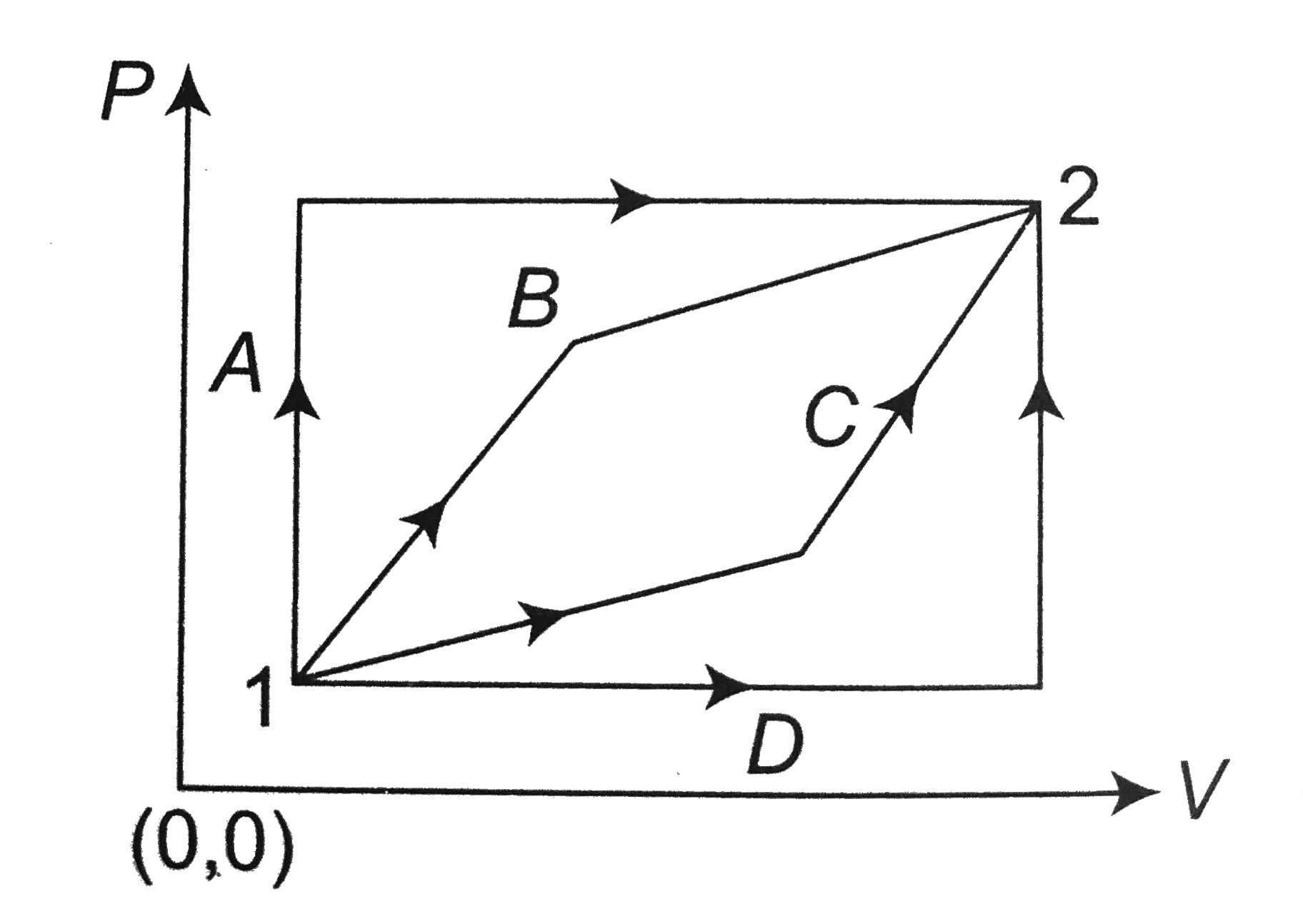
QA−QD=WA−WD
QB−WB>QC−WC
WA<WB<WC<WD
QA<QB<QC<QD
The correct Answer is:A
Step by step video, text & image solution for An ideal gas is taken from state 1 to state 2 through optional path A, B, C and D as shown in the PV diagram. Let Q, W and U represent the heat supplied, work done and change in internal energy of the gas respectively. Then, by Physics experts to help you in doubts & scoring excellent marks in Class 11 exams.
Topper's Solved these Questions
- BOOK - CENGAGE PHYSICSCHAPTER - THERMODYNAMICSEXERCISE - 63videos
THERMODYNAMICS
- BOOK - CENGAGE PHYSICSCHAPTER - THERMODYNAMICSEXERCISE - 73videos
THERMODYNAMICS
- BOOK - CENGAGE PHYSICSCHAPTER - THERMODYNAMICSEXERCISE - 43videos
THERMODYNAMICS
- BOOK - CENGAGE PHYSICSCHAPTER - SUPERPOSITION AND STANDING WAVESEXERCISE - Comprehension Type5videos
SUPERPOSITION AND STANDING WAVES
- BOOK - CENGAGE PHYSICSCHAPTER - TRANSMISSION OF HEATEXERCISE - Single correct9videos
TRANSMISSION OF HEAT
Similar Questions
A given mass of gas expands from state A to state B by three paths 1, 2 and 3 as shown in the figure
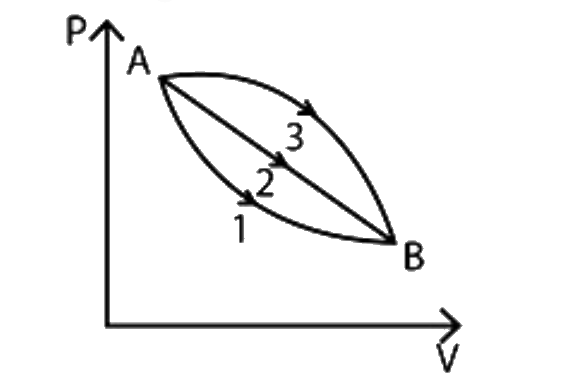
If w1,w2andw3 respectively are be the works done by the gas along three paths, thenView SolutionAn ideal gas change from state a to state b as shown in Fig. what is the work done by the gas in the process?
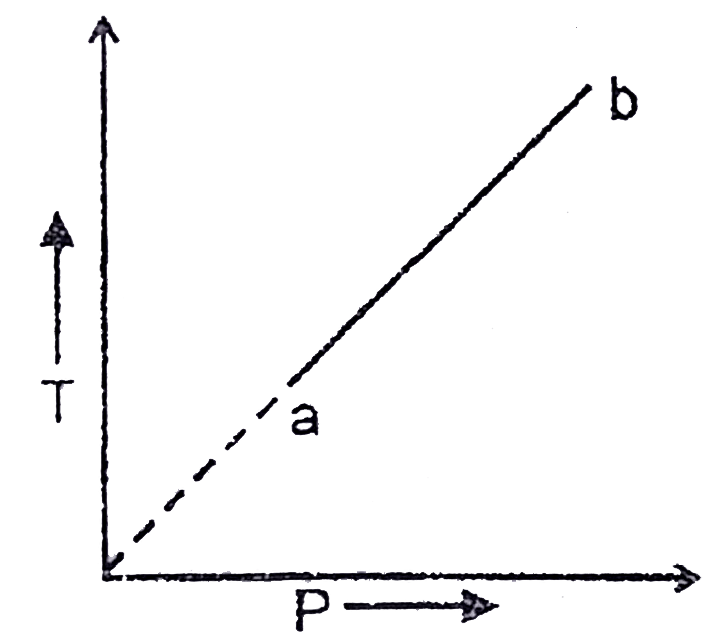 View Solution
View Solution
Knowledge Check
- Question 1 - Select One
An ideal gas is taken from state A to state B following three different paths as shown in P-V diagram. Which one of the following is true ?
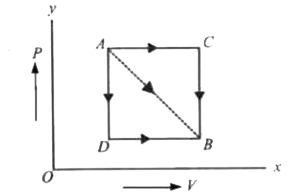 Awork done is maximum along ABBwork done is minimum along ABCwork done along ACB = work done along ADBDwork done along ADB is minimum.
Awork done is maximum along ABBwork done is minimum along ABCwork done along ACB = work done along ADBDwork done along ADB is minimum. - Question 2 - Select One
A sample of an ideal gas undergoes on isothermal expansion. If dQ, dU and dW represent the amount of heat supplied, the change in internal energy and the work done respectively,then
AdQ=+ve,dU=+ve,dW=+veBdQ=+ve,dU=0,dW=+veCdQ=+ve,dU=+ve,dW=0DdQ=−ve,dU=−ve,dW=−ve - Question 3 - Select One
One mole of an ideal gas is taken from state A to state B by three different processes (a) ACB, (b) ADB and (c ) AEB as shown in the P−V diagram. The heat absorbed by the gas is
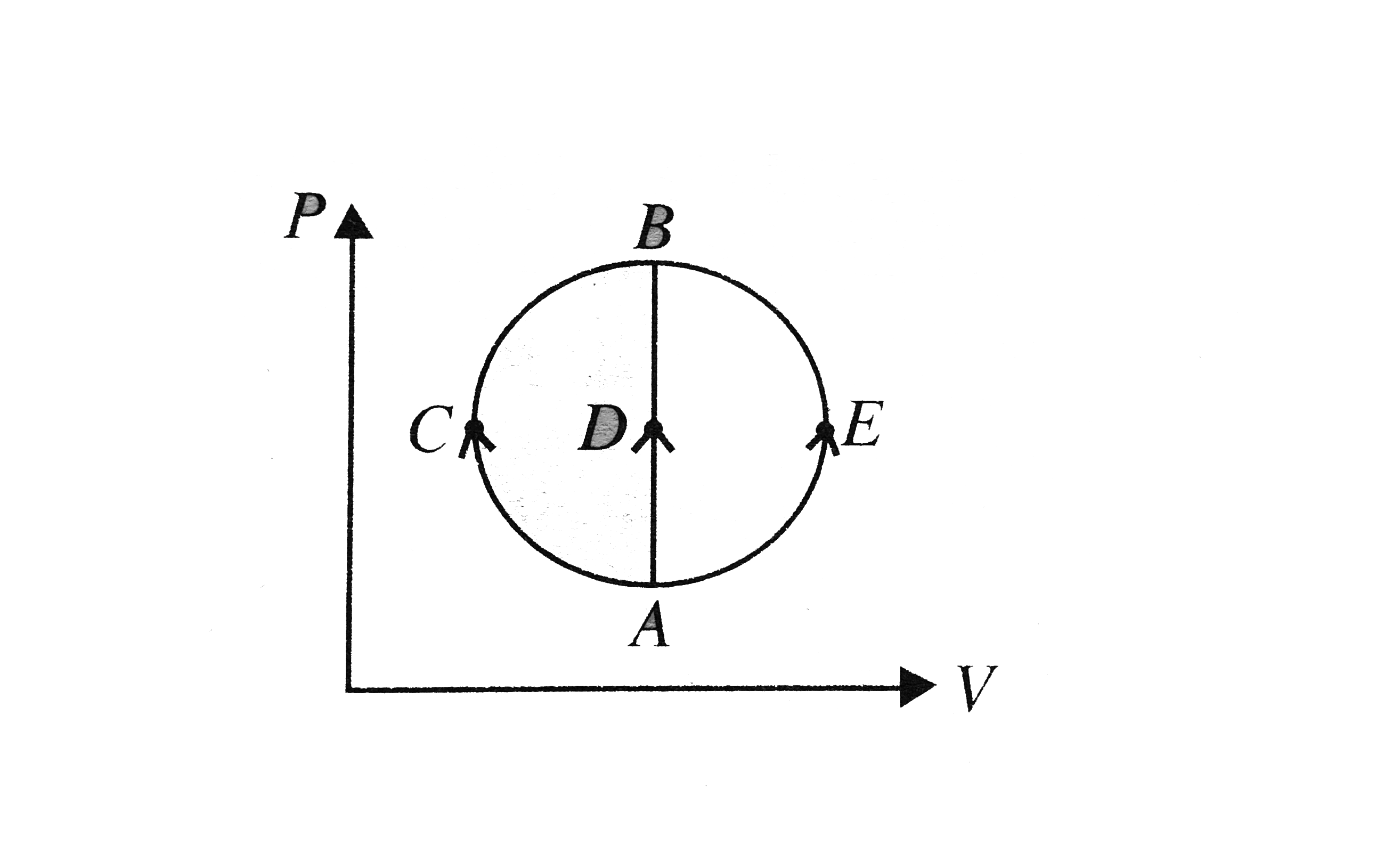 Agreater in process (b) than in (a)Bthe least in process (b)Cthe same in (a) and (c )Dless in (c ) than in (b)
Agreater in process (b) than in (a)Bthe least in process (b)Cthe same in (a) and (c )Dless in (c ) than in (b)
An ideal gas change from state a to state b as shown in Fig. what is the work done by the gas in the process?
 View Solution
View SolutionA given mass of gas expands from state A to state B by three paths 1, 2 and 3 as shown in the figure

If w1,w2andw3 respectively are be the works done by the gas along three paths, thenView SolutionAn ideal gas taken from state A(P,V) to the state B(P/2,2V) along a straight path in PV diagram. Select the correct option(s).
View SolutionA givne mass of a gas expands from a state A to the state B by three paths 1, 2 and 3 as shown in T-V indicator diagram. If W1,W2 and W3 respectively be the work done by the gas along the three paths, then
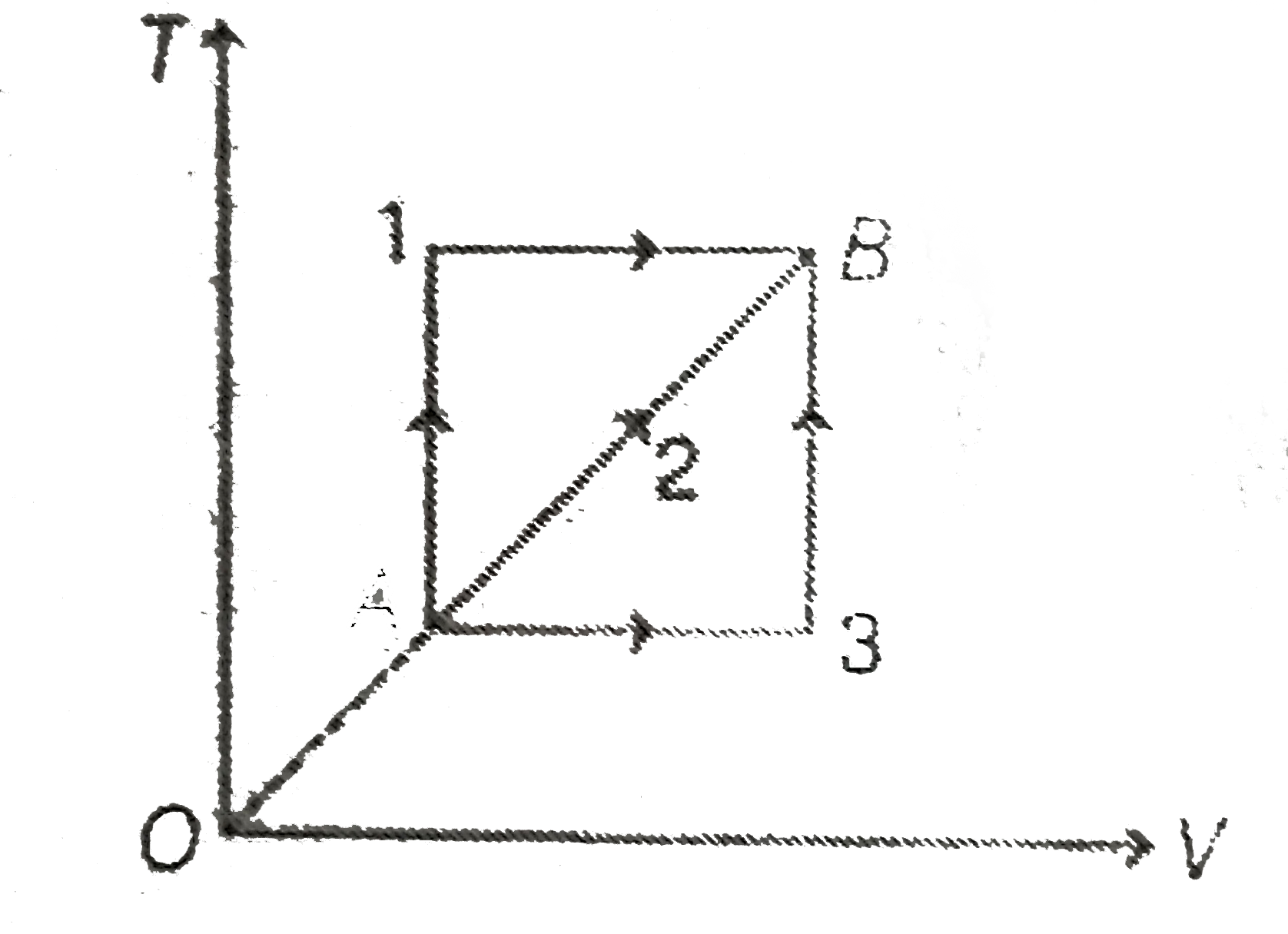 View Solution
View SolutionA given mass of a gas expands ffrom a state A to the state B by three paths 1,2
and 3 as shown in T-V indicator diagram. If W1,W2andW3 respectively be
the work done by the gas along the three paths, then View Solution
View Solution
